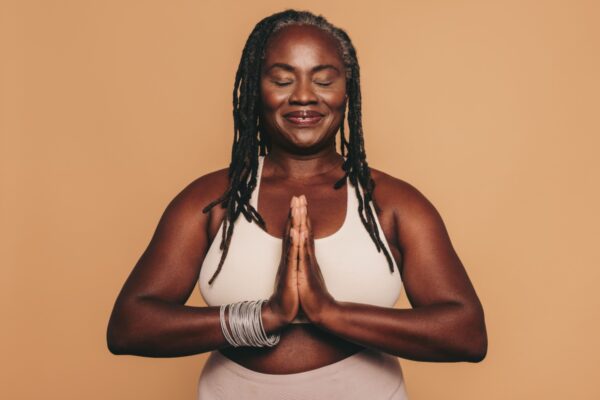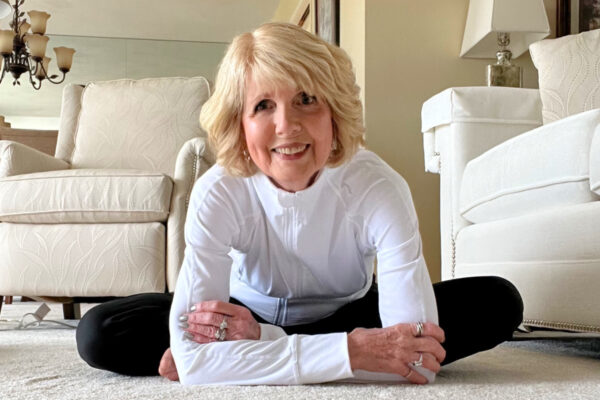
Let’s say there was a little girl who grew up with emotionally absent parents, who rarely had a good word for her.
She grew up with an empty feeling and poor self-image from lack of nurturing and positive feedback.
She felt unloved, unwanted and with an empty void, she couldn’t fill on her own.
A constant nagging feeling of abandonment, worthlessness and self-hatred accompanied her.
When she started dating, she began to feel loved for the first time.
Unfortunately, she was so starved for love that not only did the “high” of romantic love become addictive, she fell for almost anyone who sought her attention.
This addiction to love had her enter into many a dysfunctional, abusive and inappropriate relationships but she didn’t know how to break her cycle.
No matter how wonderful (or awful) these men were, once the newness subsided, she became bored and hoped to get that feeling of initial attraction or “high” again.
She hopped from one relationship to another, only to end up frustrated, bored and lonely again. This is the reality of love addiction.
Can we survive without love?
According to psychotherapist Brenda Schaeffer, who wrote the best-selling book, “Is it Love or is it addiction?”, we don’t need love to survive.
However, without experiencing love as a child, the odds of becoming an emotionally and physically healthy human being are slim.
We may live without love, but will have difficulty developing self-esteem, love for others, for ourselves or even a love for life.
It is safe to say that people who have been neglected in their childhoods are prone to seek approval, a sense of self-worth and feelings of love by involving themselves with people that might be toxic for them.
They may place themselves in situations where they will experience the same neglect they did as children thereby repeating the patterns of neglect and rejection, which confirm what they believe; that they are not worth loving.
Also read: 5 Pieces of bad advice I’m glad I ignored

Why is love addictive?
According to Helen Fisher, in a study conducted by FMRI, research shows that romantic love is like an addictive drug.
Romantic love stimulates the same neuro-pathways as opioids and cocaine, operating the mesolimbic reward system.
Fisher points out that people in love suffer the same side effects drugs provide: Tolerance, withdrawal, and relapse.
Most love addicts fall for unavailable partners, and they play the game of chase with potential lovers.
Always leaning towards drama and relationship highs and lows, the love addict needs the fix.
When left by a lover, they fall prey to depression, obsessive thinking about the loved one and lose interest in anything that doesn’t involve the person who left them.
They will also resort to destructive behaviors such as drinking and self- injury, hurting themselves, as any addict is prone to do when they lack their fix.
To break the cycle with toxic partners, certain triggers that stimulate the amygdala which lead to cravings should be avoided.
These triggers may include places, music, activities or people that remind them of their loved one.
What are the symptoms of a love addiction?
According to Brenda Schaeffer, people in addictive relationships experience the following symptoms:
- Feel consumed.
- Are somewhat masochistic.
- Fear letting go.
- Fear risk, change, and the unknown.
- Don’t experience true intimacy.
- Play psychological games.
- Attempt to change and control the other.
- Need the other to feel complete.
- Look for others for affirmation and worth.
- Play power games.
- Can’t honestly commit.
- Fear abandonment.
- Desire, yet fear closeness, unable to make themselves vulnerable.
- Are somewhat masochistic.
- Need drama.
People in healthy romantic relationships, on the contrary:
- Accept endings.
- Experience true intimacy.
- Feel free to ask for what they want, not fearing rejection.
- Don’t try to change or control the other.
- Have high self-esteem.
- Trust their partner, and enjoy solitude.
- Are spontaneous when expressing their feelings.
- Care with detachment.
- Encourage self-sufficiency in their partners.
- See each other as equals.
- Care, but don’t try to fix the other.
- Can commit.
- Are able to open up to the other and become vulnerable.

How to deal with love addiction
As with any addiction, acknowledging you have a problem is the first step, and being able to see your destructive behavioral patterns in relationships will lead you to seek help and try to change.
Love addiction is very painful, keeping you either isolated and alone or stuck in a relationship you want out of, but there is hope for recovery.
There are groups you can attend like Sex and Love Addicts Anonymous (SLAA) or books you can read such as; “Facing love addiction” by Pia Mellody or “Is it Love or is it addiction?” by psychotherapist Brenda Schaeffer.
We can have loving relationships as we all deserve to love and be loved, but some of us need to learn how to do so before we can enjoy the full benefits and immense rewards that come with a truly healthy romantic relationship.
Come on over to OnLifeAndHope.com and follow my journey of hope in midlife and beyond.





Leave a Reply